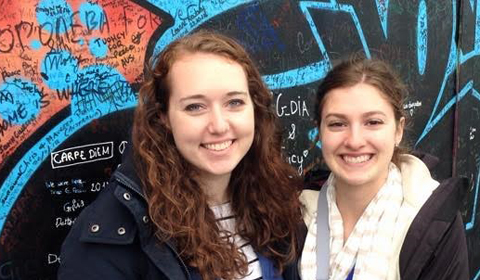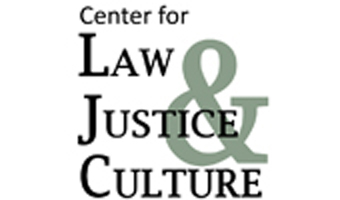
The M.A. in Law, Justice & Culture—which focuses on critical analysis of law in relation to society, culture, politics and power—is accepting applications through Nov. 15 for those interested in starting the online program in Spring 2021 (January).
This master’s degree is designed for anyone who deals with law academically or professionally—including individuals in careers that deal with law, as well as those considering law school or Ph.D. programs.
The Law, Justice & Culture degree:
- Can be completed in person on campus (full time) or entirely online (part-time).
- Offers research-driven teaching by faculty with national and global expertise in their fields.
- Strengthens skills in analytical and conceptual thinking, legal and scholarly research and writing, ethical and public interest concerns, public advocacy, and active engagement with the challenges of law and justice in the 21st century.
Spring 2021 Core Courses
LJC 6000: Proseminar in Law, Justice & Culture
The proseminar exposes students to law and society studies from an interdisciplinary perspective. Students learn the theoretical traditions of law and society scholarship through readings from different disciplines in the social sciences and humanities. The wide range of readings provides students with knowledge of varied approaches to the study of law while demonstrating a common appreciation of the mutually constitutive relation of law and society. (4 credits) — Taught by Professor Haley Duschinski
LJC 6800: Capstone in Law, Justice & Culture
This course systematically leads students through the process of independent empirical research. LJC 6800 culminates in a Master’s Research Essay to be evaluated by the faculty instructor in accordance with the program’s established evaluation rubric for major papers. (4 credits) — Taught by Professor Haley Duschinski
Spring 2021 Elective Courses
GEOG 5560: The Just and Sustainable City
A critical examination of the role of nature and political economy in the sustainable development of urban environments in the context of social and environmental justice. Topics studied include the relationship between urbanism and nature, environmental justice, compact versus sprawling development, slums in developing world cities, urban agriculture as a solution to urban hunger, toxic lawn ecologies, uneven urban forests and parks, vulnerability to urban climate changes, brownfield redevelopment and the specter of gentrification, and the role of animals in the city, among other topics. These topics are studied in both developed and developing world contexts. Students taking this course will also be asked to evaluate urban sustainability initiatives related to these topics with concepts of social and environmental justice in mind. (4 credits) — Taught by Professor Harold Perkins
This course will be taught in an online synchronous modality, with required course meetings on Tuesdays and Thursdays from 3:05 to 4:25 p.m.
HIST 5270: Slavery in the Americas
Examines the lives and experiences of slaves of African origin and descent as revealed by themselves in slave accounts and other documents. Explores, in a comparative perspective, African and Afro-American agency and identity in various New World societies. (4 credits) — Taught by Professor Mariana Dantas
This course will be taught in an online synchronous modality for discussions, with required course meetings on either Monday or Wednesday from 3:05-4:25 p.m.
LJC 6940: Special Topics in Law, Justice & Culture: Race and the Criminal Justice System
Taught by Professor Daniel Moak
This course will be taught in an online synchronous modality, with required course meetings on Tuesdays and Thursdays from 3:05 to 4:25 p.m.
POLS 5040: Civil Liberties
A problem-based approach to U.S. civil liberties law. (4 credits) — Taught by Professor Jennifer Fredette
This course will be taught in an asynchronous modality.
POLS 5210: The Politics of Law and Sexuality
An exploration of the regulation of sexuality in the U.S. from legal and theoretical perspectives. Cases and other materials will address a variety of issues including the right to privacy, pornography, the right to marry, and gays in the military. (4 credits) — Taught by Professor Susan Burgess
This course will be taught in an online synchronous modality, with required course meetings on Tuesdays and Thursdays from 12:00 to 1:20 p.m.
POLS 5550: International Law
Studies the contribution of international law to order, power, and justice in international politics. Explores historical origins and current problems in the field, with attention to classic debates over the sources, purposes, and interests associated with international law. Places formal aspects of law (centered on the United Nations and the International Court of Justice) within the wider context of global governance, including the influence of customary international law and the work of non-governmental organizations. Discussions and readings include critical perspectives on international law as a vehicle of power in a world of inequality. (4 credits) — Taught by Professor Andrew Ross
This course will be taught in an asynchronous modality.
POLS 5754: Black Political Thought
Surveys various ideological traditions that have inspired the political visions and agendas of Black Americans. Though white supremacy has negatively affected the lives of Black Americans for centuries, the response to racial oppression has been far from monolithic. In challenging white hegemony and racial oppression, Black thinkers have addressed the contradictions inherent in the joint projects of egalitarianism and racial hierarchy. Some of the greatest contributions to American political thought emerged from competing ideological frameworks, such as the debate over accommodation versus full and immediate racial integration, nonviolence versus self-defense, and socialism versus capitalist entrepreneurship, just to name a handful of contests. In envisioning an optimal racial environment, generations of activists have inserted their concerns over other related social arrangements such as sexism, classism and heterosexism, and have consequently pushed Black and non-Black Americans alike to imagine their ideal political conditions. (4 credits) – Taught by Professor Kirstine Taylor
This course will be taught in an online synchronous modality, with required course meetings on Mondays and Wednesdays from 4:35 to 5:55 p.m.
POLS 5901: Special Topics: Surveillance, Privacy and the Law
This course is only open to eCampus students.
This course explores the legal, social, and political dynamics of surveillance societies with a central focus on leading students to generate new understandings in the face of extant paradigms that fail to effectively explain and assess rapidly changing technologies, practices, and policies. (4 credits) — Taught by Professor John Gilliom
This course will be taught in an asynchronous modality.
POLS 6600: Seminar in Law & Politics
An introduction to scholarly approaches to the study of law and courts. Topics include: Constitutional Rot, Civil Rights, Divided Citizenship in the Carceral State, Same-Sex Marriage and Fragmented Citizenship, Legal Mobilization (4 credits) — Taught by Professor Kathleen Sullivan
This course will be taught in an online synchronous modality, with required course meetings on Tuesdays and Thursdays from 1:30 to 2:50 p.m.
SOC 6030: Seminar: Crime and Deviance
This course is an advanced survey of crime and deviance theories. The course will cover the history and development of theories of crime and deviance. Additional attention is focused on the methodological approaches and data sources used to estimate the distribution of crime and deviance in the U.S., and how to use and evaluate these different sources. (4 credits) — Taught by Professor Amanda Cox
This course will be taught in an online synchronous modality, with required course meetings on Wednesdays from 4:35-7:15 p.m.
How to Apply
Applicants need to have earned a bachelor’s degree, but no GRE is required.
Online Program | Deadline for Spring entry: Nov. 15
- Space available for online students in Spring 2021, Summer 2021, and Fall 2021.
- Select MA4417 for the online option.
On-Campus Program | Priority deadline: Feb. 15
- Next on-campus cohort begins Fall 2021.
- After Feb. 15, applications for Fall 2021 will be reviewed on a rolling basis, as long as space is available in the class.
- Select MA4416 for the on-campus option.
About the M.A. in Law, Justice & Culture
“Law and society is a vibrant interdisciplinary field,” says M.A. Program Director Dr. Haley Duschinski, Associate Professor of Anthropology.
“As a law and society degree, the new M.A. program draws on the analytic, interpretive, and imaginative tools of the liberal arts to shed light on the moral and political elements on law, and its meaning and significance in our everyday lives.”
“This is important training for anyone who deals with law academically or professionally – including people who are in careers that deal with law, as well as those who are considering law school or Ph.D. programs.”
The M.A. program includes core courses focusing on the theoretical traditions of law and society scholarship and the deep integration of theory and methods in this interdisciplinary field, and well as elective courses examining law from different disciplinary perspectives.
The program also offers an annual nine-day study abroad program focusing on human rights, law and justice in post-conflict Northern Ireland. This study abroad experience includes interactions with former combatants, human rights lawyers, ex-political prisoners, victims associations, and restorative justice practitioners, as well as visits to museums, former prisons, and non-governmental organizations.
- Learn more about the CLJC study abroad program on Human Rights, Law and Justice in Northern Ireland.
The program emphasizes research-driven teaching and learning. All students must carry out graduate-level independent research by completing either a master’s thesis or a master’s research essay, with the option of a capstone research course.
The program also provides professional training in academic presentation and communication through its curricular and extra-curricular components.
The degree is housed within Ohio University’s Center for Law, Justice & Culture, an interdisciplinary teaching and research center focusing on law in relation to the social and political challenges of the 21st century.



















Comments